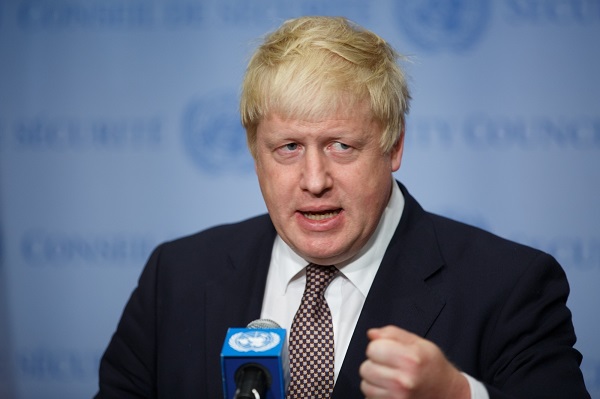London, A Brexit deal was agreed on Thursday between the UK and the European Union (EU) negotiating teams before a meeting of European leaders in Brussels, according to media reports.
“We’ve got a great new deal that takes back control,” British Prime Minister Boris Johnson said in a tweet, the BBC reported.
During a joint press conference, Johnson and European Commission President Jean-Claude Juncker called the deal a “fair” outcome.
While Johnson has urged the MPs to approve the “excellent” deal, it is still uncertain whether it will be backed by a majority of MPs in the British Parliament as the Democratic Unionist Party (DUP), the dominant pro-UK party in Northern Ireland, has rejected it.
“Come together to get Brexit done and get this excellent deal over the line,” Johnson appealed to MPs.
Johnson’s proposals for a new Brexit deal hinged on getting rid of the controversial backstop – the solution negotiated between Theresa May and the EU to solve issues around the Irish border after the UK leaves.
Juncker said he was looking forward to starting work on a new post-Brexit partnership with Britain on November 1, the day after the UK is due to leave.
“We have been involved in ongoing discussions with the government. As things stand, we could not support what is being suggested on customs and consent issues and there is a lack of clarity on VAT,” a statement from DUP leader Arlene Foster and the party’s Commons leader, Nigel Dodds, said.
“We will continue to work with the government to try and get a sensible deal that works for Northern Ireland and protects the economic and constitutional integrity of the UK.”
The EU’s chief negotiator, Michel Barnier, said the new deal rests on four main elements:
* That Northern Ireland will remain aligned to a limited set of EU rules, notably related to goods
* That Northern Ireland will remain in the UK’s customs territory, but will “remain an entry point” into the EU’s single market
* That there is an agreement to maintain the integrity of the single market and satisfy the UK’s legitimate wishes over VAT
* That Northern Ireland representatives will be able to decide whether to continue applying union rules in Northern Ireland or not every four years
Labour leader Jeremy Corbyn said the deal sounded “even worse” than what was negotiated by the Johnson’s predecessor, Theresa May, and “should be rejected” by MPs.
The two sides have worked on the legal text of the deal, but it will still need the approval of both the UK and European Parliaments.
BBC sources said that Johnson will ask EU leaders to reject requests for an extension to the Brexit deadline of October 31.
MPs passed a law in September that requires the Prime Minister to request an extension on October 19 if Parliament has not agreed a deal or backed leaving without a deal by that date.
By removing the backstop, Johnson had hoped to secure the support of Brexiteers in his own party and the DUP – which could hold the key to getting the numbers for a successful vote in the House of Commons.
The DUP has been in an agreement with the Conservative Party since the 2017 election, which has given the government a working majority in Parliament.
But after resignations and the withdrawal of the party whip from more than 20 Tory MPs in recent weeks, Johnson now could face a tough battle to get his deal through.










